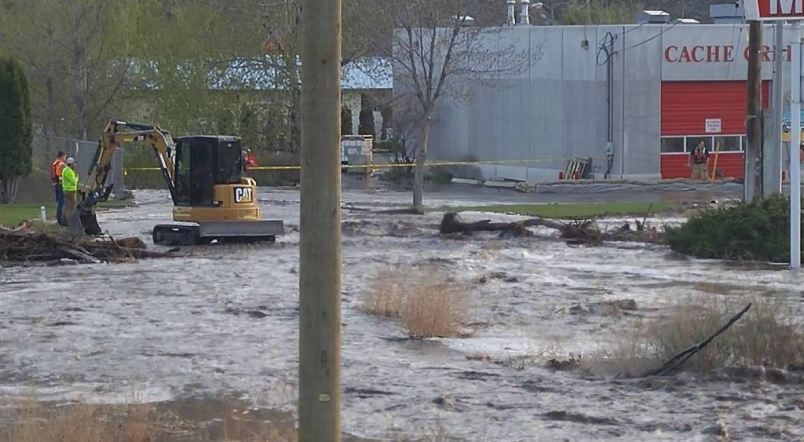With flooding breaking out in some areas of B.C. and the fire danger rising in others, residents and visitors are urged to plan their destinations and travel routes carefully and practice campfire safety.
"Some provincial routes may be affected by floods, while others may be busier than usual due to higher volume of long-weekend travellers, or if being used for evacuation," Emergency Management B.C. said in a bulletin.
The agency also suggests you make sure someone knows your plans, including routes and timing in case you experience difficulties while in transit. Pack extra food and bottled water for yourselves, as well as your pets, allow for plenty of extra time and drive safely.
Keep an eye out for road closures by going to www.drivebc.ca or or @DriveBC on Twitter.
As for how to act around flood waters, assume that all surface water, such as lakes, rivers and ditches, is naturally contaminated during a flood and keep clear of eroded banks, as they may result in unstable ground.
Also, never drive or walk through flooded streets - water can be deeper than it appears, and levels can rise very quickly - and keep children and pets away from stream banks.
Stay alert for changing conditions, particularly if you are in low-lying areas or near waterways and listen to local officials and follow their instructions if asked to evacuate.
Despite the flooding in some parts of B.C., forests, grass and other types of vegetation are drying out quickly in other areas. Since April 1, the BC Wildfire Service has responded to 134 wildfires. Remember that campfires must not be larger than 0.5 metres high or 0.5 metres wide. Never light a campfire or keep it burning in windy conditions. Weather can change quickly and wind may carry embers to other combustible material.
Maintain a fireguard around the campfire. This is a fuel-free area where all flammable materials, such as grass and kindling, have been removed right down to the soil.
Never leave a campfire unattended and have a shovel or at least eight litres of water available to properly extinguish your campfire. Make sure that the ashes are cold to the touch before leaving the area for any length of time.
Anyone lighting a campfire is legally responsible for making sure it doesn't escape and could be held accountable for damages and fire suppression costs if their negligence results in a wildfire.
And anyone riding an all-terrain vehicle or dirt bike must have a spark arrestor installed on the vehicle. Check the condition of the muffler, stay on dirt paths and avoid tall grass and weeds to reduce wildfire risks.
Smokers must dispose of cigarette butts and other smoking material responsibly, making sure that these materials are completely extinguished.
To report a wildfire, unattended campfire or open burning violation, call 1 800 663-5555 toll-free or *5555 on a cellphone. To report suspicious activities, environmental damage or a natural resource violation, call 1 877 952-RAPP (7277) or *7277 on a cellphone.


